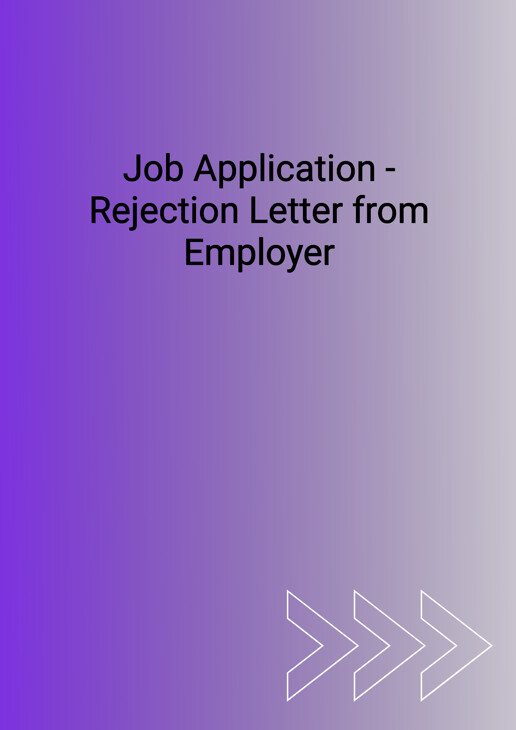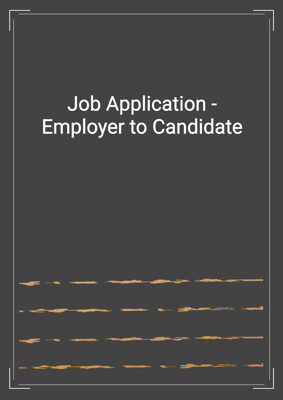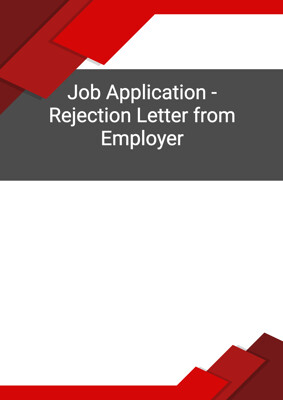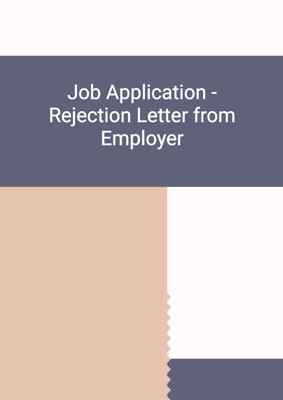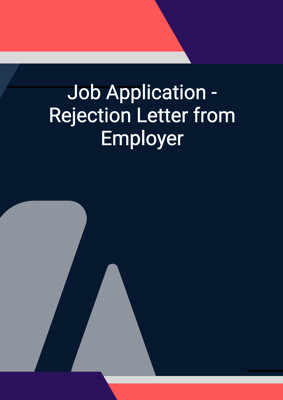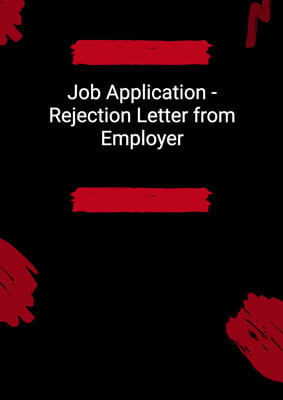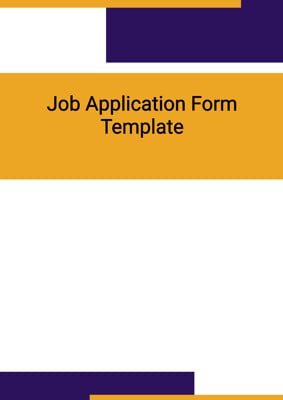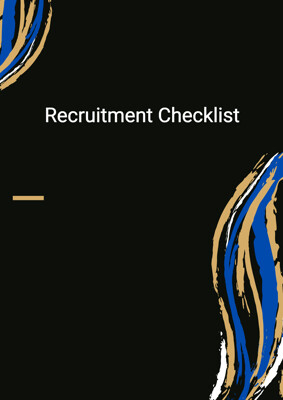How to Tailor the Document for Your Need?
01
Create Document
Click "Create Document" button and the document will be prepared with your account details automatically filled in.
02
Fill Information
Please fill in any additional information by following the step-by-step guide on the left hand side of the preview document and click the "Next" button.
03
Get Document
When you are done, click the "Get Document" button and you can download the document in Word or PDF format.
04
Review Document
Please review the document carefully and make any final modifications to ensure that the details are correct before sending to the addressee.
Document Preview
Document Description
The document titled 'Job Application - Rejection Letter from Employer' is an important document that is used to inform job applicants that their application for a specific position has been rejected. This document serves as a formal communication from the employer to the applicant, conveying the decision made by the company regarding their application.
The entire document consists of a rejection letter that includes various sections. The first section is the introduction, where the employer expresses gratitude for the applicant's interest in working for the company. It also mentions that the response to the job opening has been overwhelming, indicating that there were many qualified applicants.
The next section of the document states that the company is currently reviewing each application and will soon finalize their decision. It also informs the applicant that if they do not hear from the company before a certain date, they can consider the position as being filled. However, their resume will be kept on file for six months in case any future opportunities arise.
The final section of the document concludes the rejection letter by thanking the applicant once again for their interest in the company and wishing them luck in their future endeavors. It is signed by the account first name and last name, along with their job title and the name of the company.
Each section of the document serves a specific purpose in conveying the rejection message to the applicant. The introduction sets the tone and expresses gratitude, while the middle section provides information about the ongoing review process and the outcome if the applicant does not hear back. The concluding section wraps up the letter and leaves a positive note for the applicant's future.
Overall, this document plays a crucial role in maintaining professionalism and transparency in the hiring process, ensuring that applicants are informed about the status of their application in a respectful manner.
How to use this document?
1. Begin the rejection letter by expressing gratitude for the applicant's interest in working for the company.
2. Inform the applicant that the response to the job opening has been overwhelming and that the company has received many applications from qualified individuals.
3. State that the company is currently reviewing each application and will soon finalize their decision.
4. Specify a date by which the applicant should expect to hear back from the company. If they do not receive any communication before that date, they can consider the position as being filled.
5. Mention that the applicant's resume will be kept on file for six months in case any future opportunities arise.
6. Conclude the rejection letter by thanking the applicant once again for their interest in the company and wishing them luck in their future endeavors.
7. Sign the letter with the account first name and last name, along with their job title and the name of the company.
8. Ensure that the tone of the letter remains professional and respectful throughout.
9. Double-check for any grammatical or spelling errors before sending the letter.
10. Keep a record of the rejection letter for future reference and documentation purposes.
Not the right document?
Don’t worry, we have thousands of documents for you to choose from:
